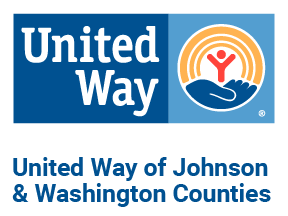Q: Does Habitat for Humanity give houses to poor people?
A: Habitat for Humanity builds homes with those in need of better housing and then sells the house to the qualified applicant. Each adult in the household contributes 250 hours of sweat equity, or time spent serving our mission. This time spent serving our mission acts as the down payment.
Q: Do Habitat houses lower neighborhood property values?
A: Many studies show affordable housing projects do not have an adverse effect on the property values of other homes within close proximity. In fact, Habitat for Humanity believes that our approach to affordable housing can improve neighborhoods and communities by fostering a sense of community and increasing the tax base.
Q: Can a Habitat for Humanity homeowner sell their house and make a large profit?
A: Habitat homeowners can sell their home at any time, however Habitat retains right of first refusal. Additionally, the sale agreement includes a second, silent mortgage that is forgiven after the homeowner lives in the home for 15 years.
Initially, the home is purchased for market value through a 15-30 year mortgage. Repayment plans are structured so that no more than 30% of the household's monthly income goes toward the mortgage, homeowner's insurance, and property taxes.
Q: I’m interested in owning a Habitat for Humanity home. What is the first step?
A: The first step is to visit the Iowa Valley Habitat for Humanity Criteria and Application page to discover if you qualify for our program.
Q: What part of Southeast Iowa does Iowa Valley Habitat for Humanity cover?
A: Our programs extend to Cedar, Iowa, Johnson, and Washington Counties.
Q: Is Iowa Valley Habitat for Humanity currently hiring?
A: As a non-profit, we work with limited funds and a small staff. We rely on AmeriCorps Service Members and thousands of volunteers to help us complete our work each year. AmeriCorps is a nationwide service opportunity funded by the Federal Government which affords a worker with a living stipend and the Segal Award for student loan debt forgiveness after one year of service.
Q: Do I have to be a Christian to work with Habitat for Humanity?
A: No. Religion is not considered when evaluating applications for our programs. We welcome volunteers from all faiths, or no faith, who can actively embrace Habitat for Humanity's mission.
Q: Does Habitat for Humanity build houses only for minorities?
A: Habitat builds homes with people in need and does not consider race, religion, nationality or ethnicity when selecting applicants. Three criteria drive the homeowner selection process: need, ability to pay an affordable mortgage, and a willingness to partner with Habitat for Humanity. IVHFH abides by the U.S. Fair Housing Act of 1968.
Q: How many Iowa Valley Habitat for Humanity homeowners have gone into foreclosure?
A: The foreclosure rate on our mortgages is below the national average. The Homeowner Selection Committee evaluates each application thoroughly and selects households that are set-up for successful home ownership. Upon sale of the home to the qualified applicants, we ensure that homeowners will spend no more than 30% of their income on housing costs. The homes we build are extremely energy-efficient and reduce energy costs. Combined, these efforts make nearly all of the households in our program successful homeowners.
Q: Does a Habitat for Humanity Homeowner make a down payment for their house?
A: Each adult homeowner signs an agreement to put in at least 250 hours of sweat equity working with Habitat for Humanity. Sweat equity is both an investment in the value of their home and a way to gain home maintenance knowledge. The value of this partnership becomes the down payment.
Q: How long does it take to get an Iowa Valley Habitat for Humanity house?
A: It takes up to nine months for the Homeowner Selection Committee to review and make a decision on each application. Once accepted into the Homeownership Program, it often takes 12-24 months to accrue sweat equity and build the home.
Q: What does a Habitat for Humanity house cost?
A: Each home we build or renovate will vary depending on the layout and location. The cost of the home includes market value of the lot purchase, materials to build the home, and all labor that is contracted (HVAC, plumbing, electrical, etc.) We sell our homes to the qualified home buyer according to financing based on their credit score. The length of mortgage is determined by income. There is no penalty for any home buyer who chooses to pay off the balance in advance.
Q: Is Iowa Valley Habitat for Humanity funded by the government or Habitat for Humanity International (HFHI)?
A: Our affiliate is a self-sufficient and independent 501(c)(3) non-profit organization. HFHI supports our affiliate by coordinating some national sponsorship opportunities and provides us with our logo, training and grant resources. We are responsible for funding all home builds, renovation projects, ramps, and home repairs. We look to businesses, faith organizations, service groups, and individuals within our area to help us in assisting more homeowners achieve strength, stability, and self-reliance.
A: Habitat for Humanity builds homes with those in need of better housing and then sells the house to the qualified applicant. Each adult in the household contributes 250 hours of sweat equity, or time spent serving our mission. This time spent serving our mission acts as the down payment.
Q: Do Habitat houses lower neighborhood property values?
A: Many studies show affordable housing projects do not have an adverse effect on the property values of other homes within close proximity. In fact, Habitat for Humanity believes that our approach to affordable housing can improve neighborhoods and communities by fostering a sense of community and increasing the tax base.
Q: Can a Habitat for Humanity homeowner sell their house and make a large profit?
A: Habitat homeowners can sell their home at any time, however Habitat retains right of first refusal. Additionally, the sale agreement includes a second, silent mortgage that is forgiven after the homeowner lives in the home for 15 years.
Initially, the home is purchased for market value through a 15-30 year mortgage. Repayment plans are structured so that no more than 30% of the household's monthly income goes toward the mortgage, homeowner's insurance, and property taxes.
Q: I’m interested in owning a Habitat for Humanity home. What is the first step?
A: The first step is to visit the Iowa Valley Habitat for Humanity Criteria and Application page to discover if you qualify for our program.
Q: What part of Southeast Iowa does Iowa Valley Habitat for Humanity cover?
A: Our programs extend to Cedar, Iowa, Johnson, and Washington Counties.
Q: Is Iowa Valley Habitat for Humanity currently hiring?
A: As a non-profit, we work with limited funds and a small staff. We rely on AmeriCorps Service Members and thousands of volunteers to help us complete our work each year. AmeriCorps is a nationwide service opportunity funded by the Federal Government which affords a worker with a living stipend and the Segal Award for student loan debt forgiveness after one year of service.
Q: Do I have to be a Christian to work with Habitat for Humanity?
A: No. Religion is not considered when evaluating applications for our programs. We welcome volunteers from all faiths, or no faith, who can actively embrace Habitat for Humanity's mission.
Q: Does Habitat for Humanity build houses only for minorities?
A: Habitat builds homes with people in need and does not consider race, religion, nationality or ethnicity when selecting applicants. Three criteria drive the homeowner selection process: need, ability to pay an affordable mortgage, and a willingness to partner with Habitat for Humanity. IVHFH abides by the U.S. Fair Housing Act of 1968.
Q: How many Iowa Valley Habitat for Humanity homeowners have gone into foreclosure?
A: The foreclosure rate on our mortgages is below the national average. The Homeowner Selection Committee evaluates each application thoroughly and selects households that are set-up for successful home ownership. Upon sale of the home to the qualified applicants, we ensure that homeowners will spend no more than 30% of their income on housing costs. The homes we build are extremely energy-efficient and reduce energy costs. Combined, these efforts make nearly all of the households in our program successful homeowners.
Q: Does a Habitat for Humanity Homeowner make a down payment for their house?
A: Each adult homeowner signs an agreement to put in at least 250 hours of sweat equity working with Habitat for Humanity. Sweat equity is both an investment in the value of their home and a way to gain home maintenance knowledge. The value of this partnership becomes the down payment.
Q: How long does it take to get an Iowa Valley Habitat for Humanity house?
A: It takes up to nine months for the Homeowner Selection Committee to review and make a decision on each application. Once accepted into the Homeownership Program, it often takes 12-24 months to accrue sweat equity and build the home.
Q: What does a Habitat for Humanity house cost?
A: Each home we build or renovate will vary depending on the layout and location. The cost of the home includes market value of the lot purchase, materials to build the home, and all labor that is contracted (HVAC, plumbing, electrical, etc.) We sell our homes to the qualified home buyer according to financing based on their credit score. The length of mortgage is determined by income. There is no penalty for any home buyer who chooses to pay off the balance in advance.
Q: Is Iowa Valley Habitat for Humanity funded by the government or Habitat for Humanity International (HFHI)?
A: Our affiliate is a self-sufficient and independent 501(c)(3) non-profit organization. HFHI supports our affiliate by coordinating some national sponsorship opportunities and provides us with our logo, training and grant resources. We are responsible for funding all home builds, renovation projects, ramps, and home repairs. We look to businesses, faith organizations, service groups, and individuals within our area to help us in assisting more homeowners achieve strength, stability, and self-reliance.







